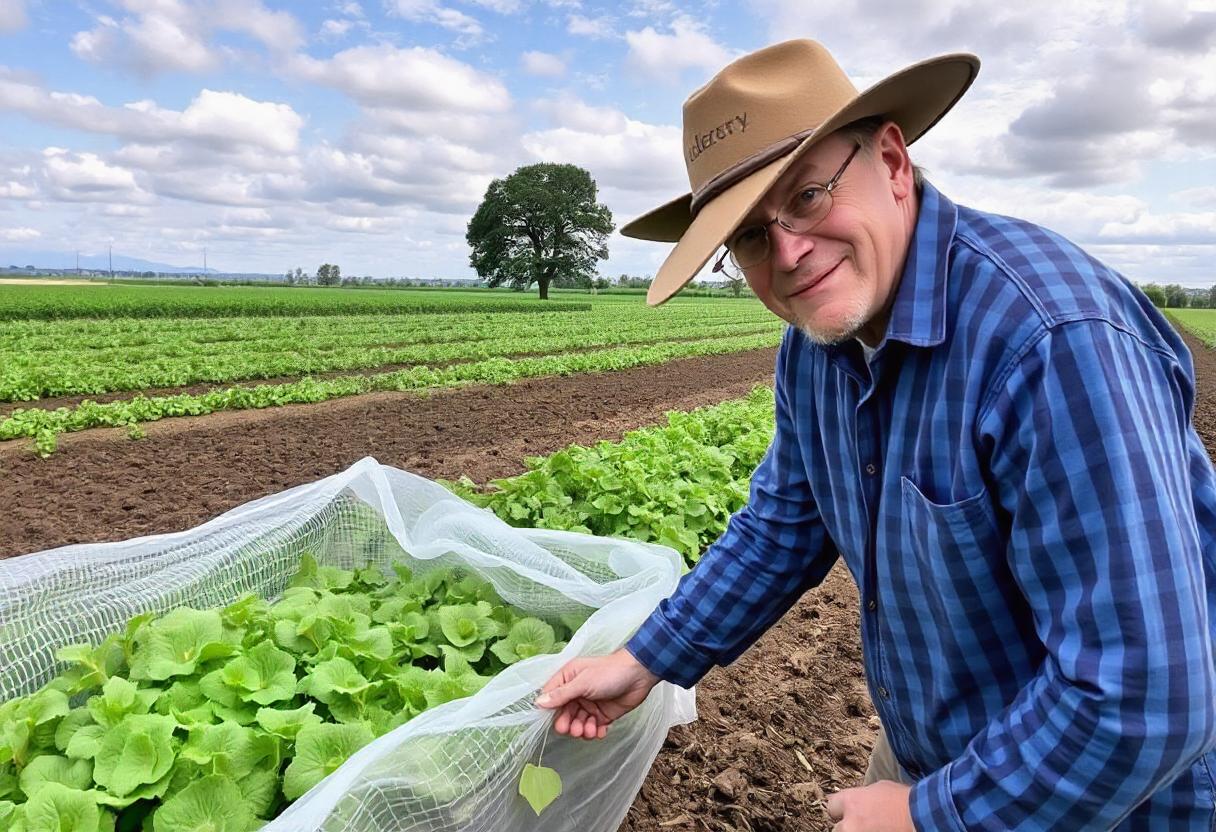
Agriculture without pesticides focuses on alternative methods to manage pests and diseases without relying on chemical treatments. This approach aims to protect crop health, maintain environmental balance, and promote sustainable farming practices. Here’s an overview of various strategies and practices for managing pests and diseases in agriculture without the use of conventional pesticides.
Organic Farming
Organic farming is a system that avoids synthetic pesticides and fertilizers, emphasizing natural methods for pest and disease control:
- Natural Predators: Introducing or encouraging natural predators, such as ladybugs, lacewings, and predatory beetles, helps control pest populations. These beneficial insects feed on harmful pests, reducing the need for chemical interventions.
- Companion Planting: Growing specific plants together can deter pests or attract beneficial insects. For example, marigolds can repel nematodes, and basil can deter aphids.
- Organic Pesticides: Organic-approved substances, such as neem oil, insecticidal soap, and diatomaceous earth, can manage pests while adhering to organic principles.
Integrated Pest Management (IPM)
Integrated Pest Management (IPM) is a holistic approach that combines multiple strategies to manage pests effectively:
- Monitoring and Identification: Regular monitoring and accurate pest identification help in determining the appropriate management strategies. IPM emphasizes early detection and prevention.
- Cultural Practices: Adjusting planting dates, rotating crops, and using resistant varieties can minimize pest problems. Proper sanitation and field management practices also reduce pest habitats.
- Biological Control: Utilizing natural enemies, such as parasitic wasps and microbial agents (e.g., Bacillus thuringiensis), can control pest populations without chemicals.
Permaculture
Permaculture is a design philosophy that creates sustainable and self-sufficient agricultural systems by mimicking natural ecosystems:
- Diverse Plantings: Permaculture systems use a diverse mix of plants, which enhances ecosystem resilience and reduces pest outbreaks. Plant diversity can disrupt pest life cycles and attract beneficial organisms.
- Mulching and Ground Covers: Organic mulches and ground covers help suppress weeds, retain soil moisture, and create habitats for beneficial insects and microorganisms.
- Design Principles: Permaculture principles include creating habitats that support natural predators and designing systems that reduce the need for external inputs, including pesticides.
Biological Farming
Biological farming focuses on enhancing soil health and ecosystem dynamics to manage pests naturally:
- Soil Health: Improving soil fertility and structure through composting, cover cropping, and reduced tillage can enhance plant resilience and reduce susceptibility to pests.
- Microbial Inoculants: Introducing beneficial microbes, such as mycorrhizae and rhizobia, can improve plant health and reduce pest pressures by enhancing nutrient uptake and soil health.
- Agroecology: Agroecological practices involve managing agricultural ecosystems to foster ecological balance and reduce pest problems. This includes maintaining natural habitats and promoting biodiversity.
Mechanical and Physical Controls
Mechanical and physical control methods involve using physical barriers and tools to manage pests:
- Row Covers: Lightweight fabrics can protect plants from insects and pests while allowing light and water to pass through. Row covers are useful for preventing pest infestations on crops.
- Traps: Various types of traps, such as pheromone traps and sticky traps, can capture and monitor pest populations. Traps help in assessing pest levels and reducing their numbers.
- Handpicking: For smaller infestations, manually removing pests, such as caterpillars or beetles, can be an effective way to control them without chemicals.
Sustainable Crop Management
Sustainable crop management practices contribute to pest management by fostering healthy crops and reducing pest pressures:
- Crop Rotation: Rotating crops prevents the buildup of pests and diseases associated with specific plants. Different crops disrupt pest life cycles and reduce soil-borne pathogens.
- Resistant Varieties: Selecting crop varieties that are resistant to pests and diseases can reduce the need for interventions. Breeding and using resistant varieties enhance crop resilience.
- Water Management: Proper irrigation practices, such as drip irrigation, can minimize water stress and reduce conditions that favor pest outbreaks.
Educating and Training
Educating farmers and agricultural professionals about non
- Educating and Training: Educating farmers and agricultural professionals about non-chemical pest management methods is crucial for the successful implementation of pesticide-free practices:
- Workshops and Training Programs: Providing workshops and training on integrated pest management (IPM), organic farming techniques, and biological controls helps farmers adopt new strategies and stay informed about best practices.
- Extension Services: Agricultural extension services offer guidance and support to farmers in implementing pesticide-free practices. They can provide resources, technical assistance, and practical solutions tailored to local conditions.
- Research and Innovation: Encouraging research into alternative pest management methods and sharing findings through publications, seminars, and online platforms helps farmers stay updated on innovative approaches and successful case studies.
Challenges and Considerations
Implementing agriculture without pesticides presents several challenges and considerations:
- Initial Costs: Transitioning to non-chemical methods may involve initial costs for new technologies, equipment, or practices. However, these costs can often be offset by long-term benefits such as improved soil health and reduced environmental impact.
- Knowledge and Expertise: Successfully managing pests without pesticides requires a deep understanding of pest life cycles, natural predators, and ecological principles. Farmers may need additional training and support to effectively implement these methods.
- Pest Resistance: Pests may develop resistance to certain non-chemical methods, such as biological controls or physical barriers. Ongoing monitoring and adaptation of strategies are essential to address emerging challenges and maintain effectiveness.
- Climate and Environmental Factors: Local climate and environmental conditions can influence the success of pesticide-free practices. Tailoring approaches to specific regional conditions and challenges is necessary for optimal results.
Conclusion
Agriculture without pesticides involves a range of alternative methods and practices that focus on managing pests and diseases in an environmentally sustainable way. From organic farming and integrated pest management to permaculture and biological farming, these approaches offer viable solutions for reducing reliance on chemical treatments. By adopting non-chemical strategies, farmers can enhance soil health, protect beneficial ecosystems, and contribute to a more sustainable agricultural future. As awareness and knowledge of these methods continue to grow, agriculture can progress towards practices that balance productivity with environmental stewardship and health.